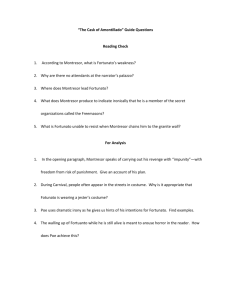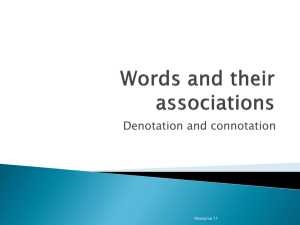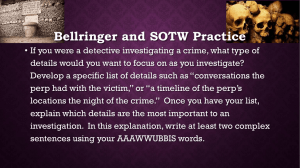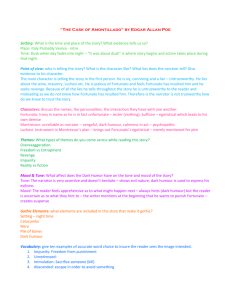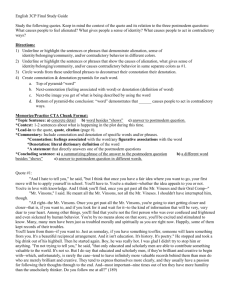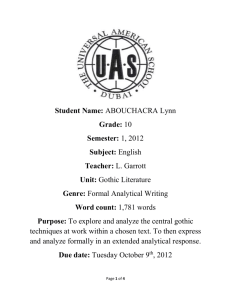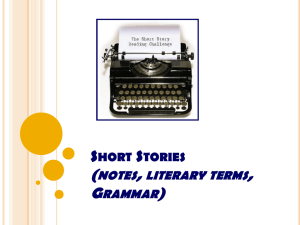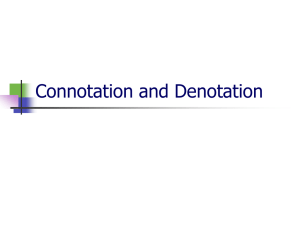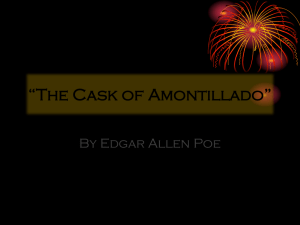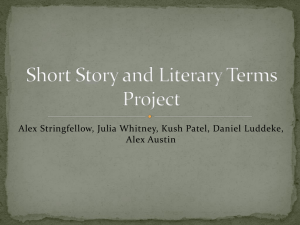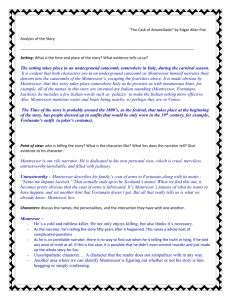Short Story Review Part One: The Cask of Amontillado Connotation
advertisement
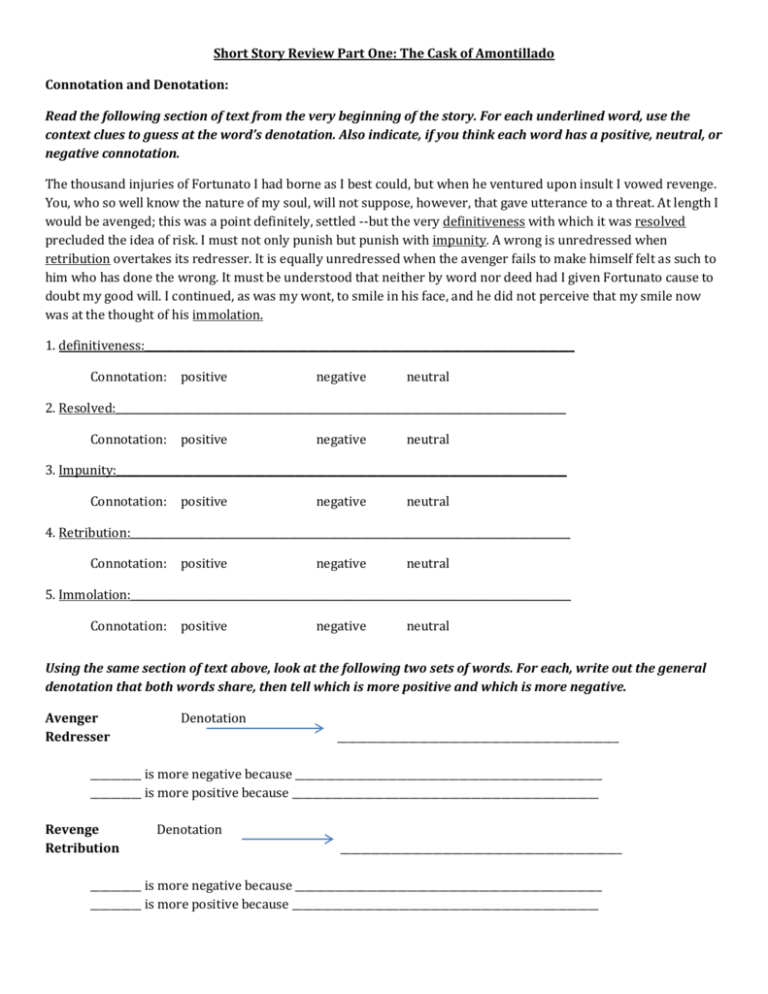
Short Story Review Part One: The Cask of Amontillado Connotation and Denotation: Read the following section of text from the very beginning of the story. For each underlined word, use the context clues to guess at the word’s denotation. Also indicate, if you think each word has a positive, neutral, or negative connotation. The thousand injuries of Fortunato I had borne as I best could, but when he ventured upon insult I vowed revenge. You, who so well know the nature of my soul, will not suppose, however, that gave utterance to a threat. At length I would be avenged; this was a point definitely, settled --but the very definitiveness with which it was resolved precluded the idea of risk. I must not only punish but punish with impunity. A wrong is unredressed when retribution overtakes its redresser. It is equally unredressed when the avenger fails to make himself felt as such to him who has done the wrong. It must be understood that neither by word nor deed had I given Fortunato cause to doubt my good will. I continued, as was my wont, to smile in his face, and he did not perceive that my smile now was at the thought of his immolation. 1. definitiveness:____________________________________________________________________________________ Connotation: positive negative neutral 2. Resolved:________________________________________________________________________________________ Connotation: positive negative neutral 3. Impunity:________________________________________________________________________________________ Connotation: positive negative neutral 4. Retribution:______________________________________________________________________________________ Connotation: positive negative neutral 5. Immolation:______________________________________________________________________________________ Connotation: positive negative neutral Using the same section of text above, look at the following two sets of words. For each, write out the general denotation that both words share, then tell which is more positive and which is more negative. Avenger Redresser Denotation _______________________________________________________ __________ is more negative because ____________________________________________________________ __________ is more positive because ____________________________________________________________ Revenge Retribution Denotation _______________________________________________________ __________ is more negative because ____________________________________________________________ __________ is more positive because ____________________________________________________________ Now answer the following regarding the passage. This section is much like the test you will be taking on Friday. 1. 2. 3. Look at the connotations of the words in the passage. The diction in the passage could best be described as a. Melancholy b. Informal c. Intellectual d. Excited The sentence structure (syntax) in the passage could best be described as a. Short and to the point; simple sentences b. Longer and detailed; compound and complex sentences c. Varied; both simple, straightforward sentences and longer complicated sentences d. Extremely descriptive; compound, complex, and compound-complex sentences Which of the following is an example of verbal irony a. “The thousand injuries of Fortunato I had borne as I best could” b. “I must not only punish but punish with impunity” c. “At length I would be avenged” d. “neither by word nor deed had I given Fortunato cause to doubt my good will” Now look back through the story. Find an example of each of the following. Quote the example, then explain how you know. Simile: Quote: Explanation: Metaphor: Quote: Explanation: Personification: Quote: Explanation: Hyperbole: Quote: Explanation: Imagery: Quote: Explanation: Short Story Review Part Two: The Cask of Amontillado Analyze the character of Montressor by answering the questions below. 1. Montressor is motivated to take revenge because a. Fortunato gave him an injury b. Fortunato insulted him c. He is jealous of Fortunato d. Fortunato hurt someone he loves 2. Montressor could best be described as a. Intellectual, strategic, and cunning b. Flighty, impulsive, and emotional c. Dramatic, loud, and boisterous d. Content, peaceful, and joyous 3. Which of the following methods of characterization does the author use most to show that Montressor is excellent at acting one way while feeling another a. His words to the reader and Fortunato b. His actions toward Fortunato c. His interactions with minor characters like Luchesi d. The narrator’s direct description of him 4. Which of the following methods of characterization is used most to reveal the character of Fortunato a. His own words and his own actions b. His interactions with other characters and the narrator’s direct description of him c. His own words and the narrator’s direct description of him d. His own actions and his interactions with other characters 5. Montressor would be considered a a. Round and static character b. Round and dynamic character c. Flat and static character d. Flat and dynamic character 6. Fortunato would be considered a a. Round and static character b. Round and dynamic character c. Flat and static character d. Flat and dynamic character Irony: Find one example of each of the following in the storySituational Irony (explain): Dramatic Irony (explain): Verbal Irony (quote and explain): Structure of Events and Foreshadowing: Though we do know he is planning revenge, Montressor’s ultimate plan for Fortunato is not known to us until the very end. However, there are several clues the author gives us that point toward this conclusion. Below, describe Fortunato’s fate. Then, come up with as many examples of foreshadowing as you can that could lead you to this ending (at least 3). Be sure to tell what happened or what was said and then explain how that points to the end. Fortunato’s Fate: Foreshadowing Examples and Explanations: Terms to Know: Setting Direct Characterization Indirect Characterization Diction Situational Irony Dramatic Irony Verbal Irony Metaphor Simile Personification Imagery Theme Hyperbole Connotation Denotation Tone Mood
